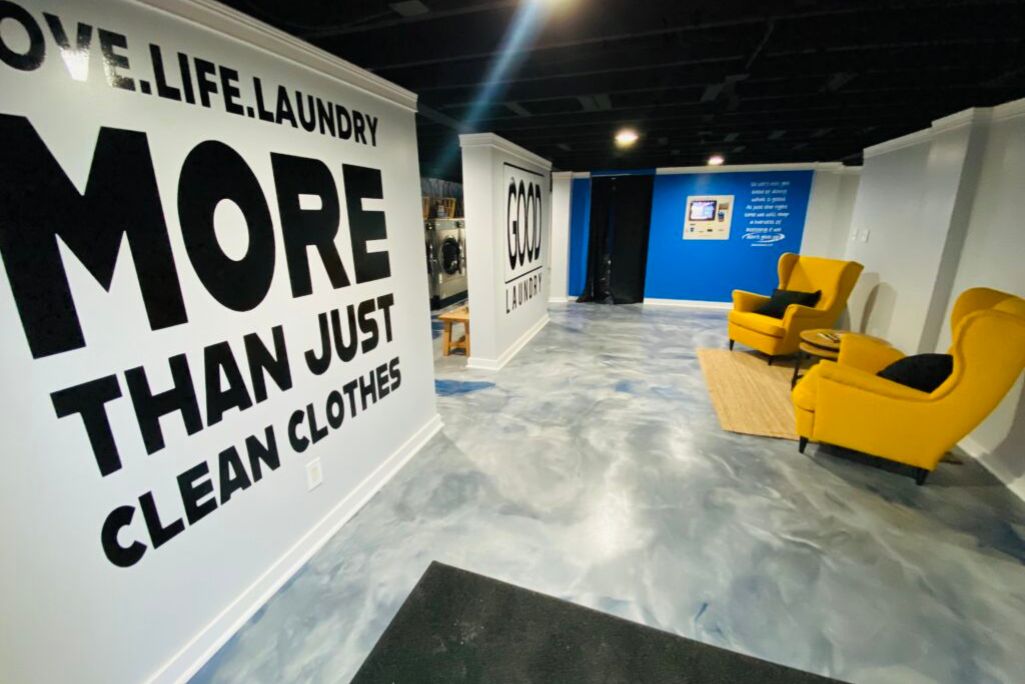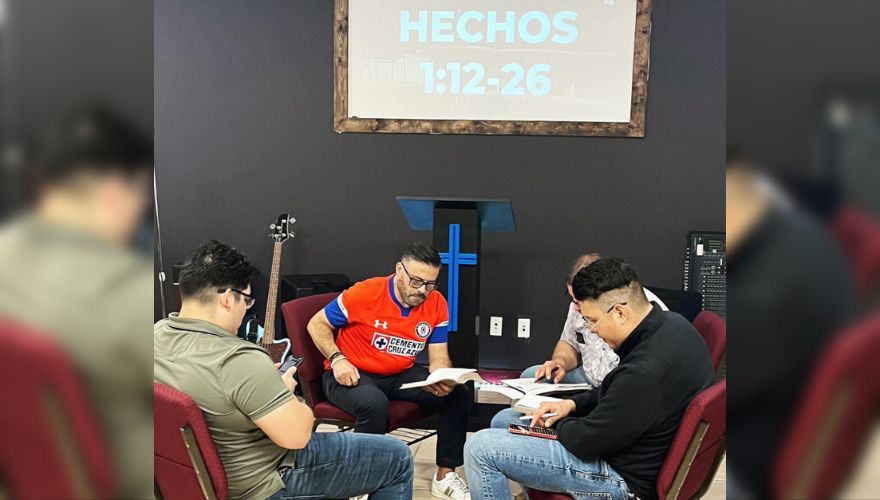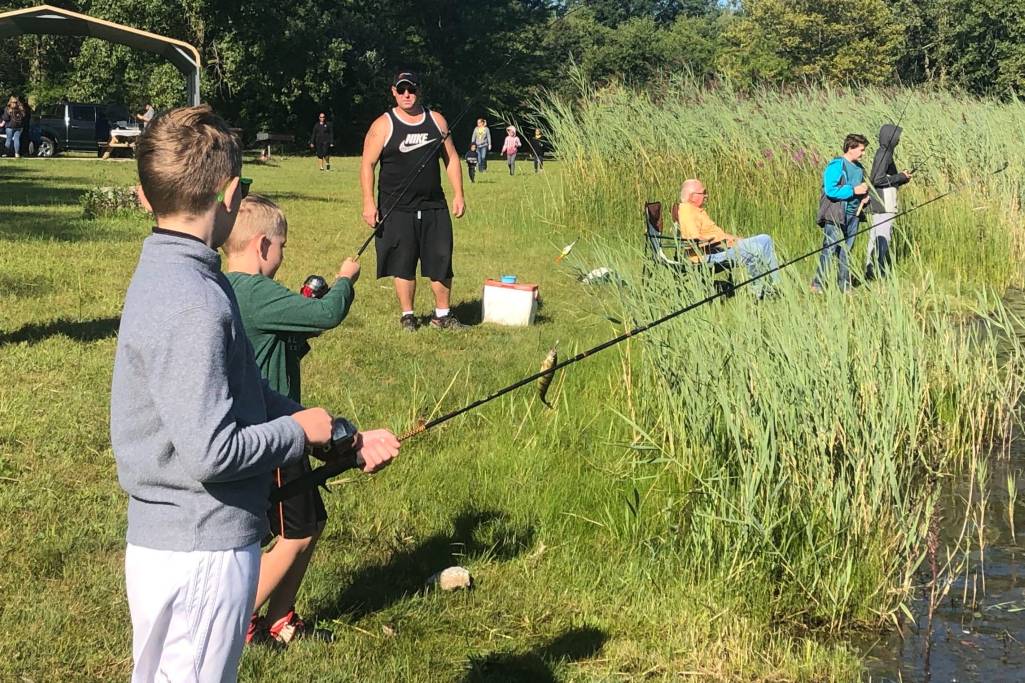
FLINT, Mich. (BP) — The irony is not lost on Leo Robinson II.
When he was a kid his mom told him he shed dirty clothes like a snake, leaving them everywhere and in the weirdest places. She did his laundry all the way through college. After getting married, Robinson and his wife, Miosha, made a deal. She did the laundry and in exchange would never have to pump gas or cut grass.
So, Robinson has had little to do with clean clothes. As a pastor, though, he knows a few things about the importance of spiritual cleanliness. Also as a pastor, he has a heart for his community’s needs, something that became crystal clear by an unexpected delay and has done a lot of good for many.
COVID delay, need identified
Robinson’s plan in early 2020 was to launch Good Church in his native Flint that Easter. But because of a virus making its way from China, rumors grew stronger by the hour as he attended a February missions conference in Orlando. The U.S. was on the verge of “shutting down,” whatever that meant.
He and Miosha found out moments after landing in Detroit. Walking through the airport, announcements poured over TVs that many offices and businesses were closing temporarily to fight the spread of COVID-19.
“We drove home and learned our kids weren’t going back to school. Everything kind of blew up from there,” he said. “We ended up delaying the church’s launch until that October. But that ended up being a good thing.”
During those months, they commissioned a demographic study of the neighborhood.
“We found out that in a 4-mile radius of the church the neighborhood was 80% unchurched. It had changed from about 98% African American to 48% and 47% Caucasian,” he said.
Socioeconomic challenges continued to plague the area. One in particular stood out.
“We went into the housing projects and gave them warm food, which let us get to know them a little more,” Robinson said. “But then we found out that access to clean clothes was a major need. They had to go to a laundromat 4 miles away.”
It gave them a good idea. Good Church would eventually become the home of Good Laundry.
Getting started
The idea became a reality earlier this year. You don’t just plug in some washers and driers and make invitations. And when others find out, you realize you’re going to need a few more machines.
“It became more on a commercial scale. We needed a license, adequate space. Schools found out and asked if they could rent it out,” said Robinson.
It became a $500,000 project. Multiple sources, including Southern Baptists’ Send Relief, joined the funding effort. One family gave $90,000 anonymously. An insurance company provided $50,000.
“Miracle after miracle came to help us reach the needed goal,” Robinson said.
While many churches and nonprofits often respond to needs such as food insecurity, Good Laundry responds to those in what Robinson called “hygiene poverty.”
“Kids with dirty clothes will skip school to avoid being bullied. That creates an absentee issue,” he said. “The schools and counselors will do special things like getting new clothes to get them back, but it doesn’t work for all of the kids.”
That creates a domino effect, he explained. Absenteeism not only affects test scores but attendance on “count days” that factor into determining a school’s state funding. That, in turn, trickles into areas such as teacher salaries and facility upkeep.
In addition, lack of clean clothes affects employment for adults.
“Crime rates go up because it’s easier to sell drugs than go to a job that provides a uniform, but you can’t wash it,” said Robinson. “People assume lower-income communities have financial assistance from the government, but that doesn’t cover things like laundry.”
The nearest laundromat for his community is about a 4-mile bus ride. Getting there, washing clothes and returning home can easily take most of your day, noted Robinson.
More than clean clothes
Good Laundry has its own, well-kept location at Good Church. The floors are clean in the lounge setting with couches and tables for relaxing, computers available for homework or other tasks. Areas catered to children and teens are there, too.
It’s not a 24/7 service, so clients need to sign up for a time slot, though steps are taken to welcome walk-ins when possible. Seventeen machines are capable of serving 120 families a week.
Costs are basically half those in a standard laundromat. People aren’t looking for a handout or free services, Robinson said, just accessibility.
There is also the matter of soul care, evident from the “More than clean clothes” motto near the front door and on volunteers’ shirts.
“We always have someone there,” Robinson said. “We want to be known for our service, but for them to also feel loved. The machines are operated with cards that are purchased at a kiosk. Galatians 6:9, on the kiosk, reminds the user of the importance for doing good for all people.”
The work reflects the principle of finding what your community needs and addressing it from a gospel standpoint, said Michigan Baptists’ executive director, Ed Emmerling.
“I love the fact that Leo and Miosha are meeting their community’s greatest felt need to meet their greatest need — salvation in Jesus,” he said.
“With a first-class facility, Good Laundry and Good Church are changing the community one family at a time. Leo is a visionary leader whose heart is on the pulse of the needs around his community and truly cares to impact those families physically and spiritually. Good Church is an example as to what true gospel-centered partnerships can look like.”
Washed away
Single moms and their children have occupied the space. So have widowers who were accustomed to their wives doing the laundry and need help. Weekly, a nonprofit group that works with formerly trafficked women rents the facility for clients to wash clothes and have a Bible study.
All groups benefit from clean clothes, but also a safe place to talk with others while being reminded of a God who loves them and wipes away every stain.
Considerable heavy lifting and teamwork went into Good Laundry’s existence.
“My wife, Miosha, is the smart one in my family and put the vision to paper and secured the grants,” said Robinson. “Ezekiel Harris is a board president and helped establish the 501c3 and partnerships. Janell Robinson and Grant Mason are board members over the financial aspects of Good Laundry. Ashly Harris is our construction manager and was vital throughout the journey.”
All are members of Good Church. Justin Jeris, a construction consultant, attends a metro Detroit church and volunteered his services when he heard of the project.
Beneficiaries and supporters of the work agree that the result is, indeed, very good.
“This is more than just a laundry service,” said Robinson. “We want them to feel loved. Our heartbeat is for them to know their souls have been cleaned as well.”
(EDITOR’S NOTE — Scott Barkley is chief national correspondent for Baptist Press.)


